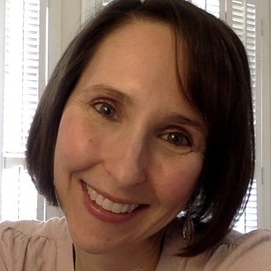
Today’s post is by author Eva Langston (@eva_langston).
Don’t be fooled by the title. I’ve actually sent hundreds of queries for four different novels over the past decade. Without going into detail, I queried a novel and eventually got an agent, parted ways with that agent, queried some more, collected rejections, wrote three more novels, queried more, revised a lot, had some babies, and then got back to querying.
My summary: traditional publishing is a long game, so get yourself some gumption.
Now, when I say 90 queries, I’m talking about the queries I sent for my most recent novel. The novel that, after a year and a half in the query trenches, got me an agent. I’m now happily represented by the brilliant Ali Lake of Janklow & Nesbit.
In the fall of 2020, I started querying with what I thought was my best novel yet: a YA paranormal suspense. At first I was getting nothing but form rejections. So I sought advice from my writing group and revised the query letter and opening pages. But still, crickets. Finally I paid for a one-on-one Manuscript Academy meeting with agent Fiona Kenshole. And she laid a finger on why I wasn’t getting any requests.
I was already doing all the things:
- Personalizing my query for each agent
- Giving the genre and word count
- Ending the summary with the stakes (“Now she must _____ or else _______.”)
- Including recent comp titles and a brief bio
But once I made the changes described below, I immediately started getting more manuscript requests—ten in total. Not bad in the challenging pandemic publishing environment. And, joy of all joys, one of those requests turned into an offer of representation.
How I changed my query letter
1. I tightened my query, getting rid of anything that wasn’t necessary and specific. I cut the summary part of my query from four paragraphs and 234 words to two paragraphs and 146 words. Think about how agents are reading queries: at night, after a long day of meetings, maybe on their phones on the subway. They are skimming query letters, only spending a minute or two on each one. If yours is long-winded or confusing, they will move on. So use short, concise paragraphs. Get to the point and tell what happens in your book.
2. My novel deals with a major mental health issue, so I worked with a sensitivity reader and mentioned that at the end of my query. I don’t know if this made a difference, but it certainly didn’t hurt, and I know it made my book better.
3. Most importantly, my novel is a mystery/suspense, but my first query letter was too vague because I was afraid to give away the “big twist.” When Fiona Kenshole asked me to tell her about my novel, I started blabbing about the big twist. “That’s fabulous,” she said. “WHY are you not putting that in the query?” I worried it was a spoiler, but she said it was okay to be spoilery because it was what made my story unique. Once I started giving away the big twist in my opening paragraph, I got a lot more agent interest.
In addition to giving away the big twist, I simply told more specifics of the story. Before I was being too coy, hinting at plot points instead of stating them outright. I was afraid of giving away too much, but vagueness is the kiss of death in a query. Better to go big and bold and, most of all, specific so your story will stand out to agents who read hundreds of queries a week.
Remember that agents are not reading your query like a regular reader. They are reading to see if it’s something they can sell. They’re looking for what will make your book stand out in a crowded market. Don’t be afraid to give away the good stuff. The good stuff is what gets their attention.
How I changed my first 10 pages
1. At first my book opened with the protagonist waking up in the middle of the night outside a graveyard. Spooky, yes. Not a bad way to start. But maybe not the most unique, especially for a paranormal novel. So when a friend from my writing group suggested I have my protagonist wake up somewhere else—somewhere equally creepy but less stereotypically spooky—I jumped on the idea. Now the book begins with the main character waking up in a stranger’s darkened kitchen.
Often you are only submitting your first five or ten pages to an agent. If those pages aren’t enough to snag their interest, you’ve lost your shot. Of course you should revise your entire manuscript, but pay extra close attention to your first pages. Are they conveying the right tone? Are they hinting at exciting things to come? Will they get your reader invested in the story?
2. Just like the query letter, I tightened my first ten pages. I cut unnecessary backstory and worked on the pacing. Fast pacing may not be the goal for every story, but certainly for MG/YA and for mystery/suspense, you want to make sure you’re not losing the reader’s attention by letting things drag. Readers of all genres are simply not as patient these days. If your story “really gets going” in Chapter 2, maybe that’s where it should start.
3. In the first few pages, my protagonist runs down the sidewalk in the middle of the night, back to her house. She’s terrified and confused, having woken up somewhere that is not her bed. She’s also barefoot and in her pajamas. It wasn’t bad, but it could have been better.
When I had my meeting with Fiona, she asked me, “Have you actually gone outside in the middle of the night and run down the sidewalk barefoot?” The answer was no, I had not. Fiona suggested I do so to help me better understand the sights and sounds in a neighborhood in the middle of the night, and what it feels like to run barefoot alone in the dark. After my midnight run, I rewrote the first two pages, making them more immediate, sensory, and visceral.
Parting thoughts
Querying can be hard and disheartening. You have to query the right agent at the right time with the right project. Sometimes it really is a numbers game. Even with an excellent query and opening pages, you’ll still get rejections. A lot of them. Just keep going. Celebrate the small things, like a personalized rejection. Start working on something new. And remember, it only takes one “yes” in a sea of “no.” The people who have success in traditional publishing are the ones who refuse to give up.
My final query letter
Dear Ms. Lake,
After seeing your recent #MSWL, I’m querying with my YA paranormal suspense, NOT MYSELF TODAY (81,000 words), in which a girl becomes possessed by a ghost with multiple personalities.
High school senior Natalie doesn’t believe in witchcraft. But in a desperate attempt to find her missing friend, Lorna, she agrees to do a midnight ritual with Lorna’s ex. It doesn’t seem to work, but in the weeks that follow Natalie starts sleepwalking. One night she blacks out at a party and wakes up hours later in the backseat of a stranger’s car with three hundred dollars in her purse and a new contact in her phone.
As she investigates what happened during those lost hours, she becomes convinced the ritual opened her up to the spirit world, and that she’s being possessed by a ghost. A ghost who is plotting a murder. And that this is all somehow connected to her missing friend. Now Natalie must use witchcraft to exorcise the spirit and save Lorna before she blacks out again…and someone ends up dead.
NOT MYSELF TODAY combines the psychological thriller tone of Kit Frick’s I Killed Zoe Spanos with the witchy vibes of teen movie The Craft. Other comp titles include The Door to January by Gillian French and All Our Hidden Gifts by Caroline O’Donoghue.
I am a former high school math teacher with my BA in Psychology and my MFA in fiction writing. My short stories have been published in literary magazines and nominated for the Pushcart Prize. I was previously represented by an agent (for a different novel), but he is no longer agenting. NOT MYSELF TODAY was reviewed by a sensitivity reader with a Dissociative Identity Disorder diagnosis.
Thanks so much for your time. I have pasted the first 10 pages below.
Most Sincerely,
Eva Langston
www.evalangston.com

Eva Langston received her MFA from the University of New Orleans and teaches at The Writer’s Center in Bethesda, MD. Her short stories have won contests (such as The Playboy Fiction Contest) and been nominated for the Pushcart Prize. She is represented by Ali Lake of Janklow & Nesbit, and her writing-resources newsletter now has over 2,600 subscribers. She can often be found taking walks in her historic Maryland town, where she is an elected official.

Excellent article, Eva. I’m grateful that you’ve shared your final query letter with us. That’s incredibly generous of you.
I think for many writers, including myself, the switch from long-form writer (which I’m good at) to almost having to take on the mantle of an advertising copywriter (which I’m not) is a challenging one. And, honestly, I still think there’s a lot of luck involved in catching the right agent at the right time with the right book. But thrilled to read that in your case that persistence paid off.
P.S. I particularly applaud the advice Fiona Kenshole gave you to experience that scene rather than simply imagining what running barefooted outside in pyjamas at night would be like. Great stuff!
Great specific tips! I especially love your query letter and how you redid your opening.
“Have you actually gone outside in the middle of the night and run down the sidewalk barefoot?”
I smiled when I read this.
Thank you for sharing your experience. I think you’re going to help a lot of authors. Myself included.
Thanks so much for this article! I’ll be querying in the New Year and will be returning to your post when I do. Thank you, too, for kindly sharing your query letter. I also hired a sensitivity reader for my book but hadn’t thought of mentioning this in my query letter. Thanks to you, I’ll be adding that in!
Excellent article. Thank you so much for your insight. I’ll be using some of that insight as I perform some revisions to my own query letter, which, by the way, hasn’t gotten me too far to this point.
Thanks for sharing your process and superb sample, Eva. No wonder your book got picked up by such a great agent – I look forward to reading it!
Traditional publishing is a long game, so get yourself some gumption. Thanks for saying that. Querying can be hard and disheartening. Thanks for that too. And also for your generosity in sharing your successful query letter. Wishing everyone a great 2023.
Really enjoyed this. Sometimes it’s hard to figure out the details to get right in a query. Thank you for your insight and advice.